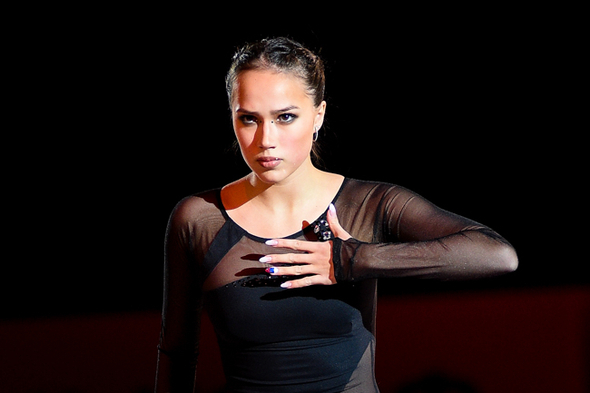
The following is an interview from Russian figure skater Alina gave Tatyana FLADE: Olympic champion Alina Zagitova at the Russian Championship in St. Petersburg acted as a commentator of the First Channel, and also participated in demonstration performances. The next day, the figure skater presented two numbers at the anniversary show "Ice Fantasies of Tamara Moskvina", and between the performances she agreed to give an interview.
- Alina, four years ago at the 2018 Russian Championship, which was held at the same Yubileiny arena, you were selected for the Olympic Games in Korea, now you worked here as a commentator for the First Channel. With what emotions did you follow the national championship 2022?
- At this championship, I was in a different role, off the ice, in a completely new role for myself - I took comments from athletes for the First Channel. I seriously
prepared for this, read in advance, reviewed all the interviews of our dancers, wrote texts for myself about Nikita with Vika, Sasha with Vanya, since I began to work not from the first, but from the second day of the championship. I love being prepared. But this was not necessary, as it was necessary to ask questions to the singles. But that's okay. I realized that in such work a lot of things are unpredictable, everything can change quickly and it is impossible to plan everything. But if you understand the essence of what you are asking, then you need to speak from the heart. I realized that being a journalist is all the time interested, following what is happening. Being in the topic is the most important thing, so the profession of a journalist is very difficult.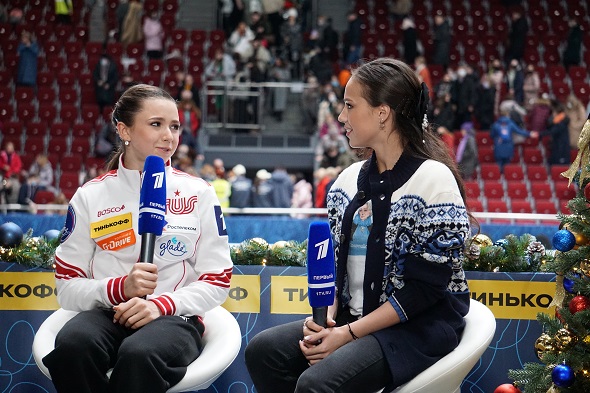
- Did you calmly watch the performances of the girls or with excitement, since you yourself experienced this?
I watched the girls prepare. It was quite stressful. That's right. But at that moment I exhaled, I realized that the most important thing is that I am not on the ice, that I have something else, because I have no idea what it is like for them now. The competition has become much higher and, as they say, the strongest survives and wins. So I watched it with some nostalgia, because four years ago I won the championship here. But even though I didn't perform now, I was just as nervous because I went through all this before the Olympics in Korea and I know, I understand all these feelings when you go out on the ice. It's impossible to forget completely. Nohow. So I knew what the girls were feeling at that moment.
- The champion of Russia Kamila Valieva said that sometimes she consults with you.
- Camila and I - yes, somehow became friends. When I come to morning workouts, she sits across from me in the locker room. In the evening, I do not always manage to train, there are some other things to do.
Camila and I communicate. On the demonstrations, I helped her make stickers on her face. I don't know, I'm pleased to be asked for advice. It's always nice when you can pass on some of your knowledge and experience, but, of course, not everything.
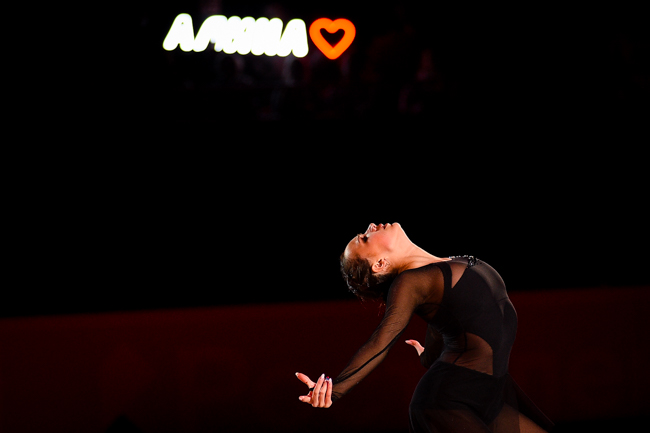
- The most important piece of advice you gave?
- I'm not going to give advice when I'm not asked. But I think in sports 100 percent I can tell you something. It's just that every athlete is different, but no matter what advice you give, it will not help, because people are different, everyone has their own path that needs to be followed. So did I. You can listen to someone's advice, learn something from it, but still your experience is better than someone else's.
- What is more difficult for you - to comment or to skate on the ice?
- It's different. As a journalist, it is difficult for me to get involved at the moment of work, but you go to the Russian Championship or other competitions as an athlete for a while, you train. You come out, of course, with nerves, but still your body does what has already been developed. And when you sit down with a microphone, everything is unpredictable.
To be honest, it's still hard for me to watch figure skating, because you think: look, I could also perform, and you still experience the same feelings in your soul when it takes your breath away, there is a feeling of euphoria, as if you yourself go out on the ice. It's hard for me to watch all this yet.
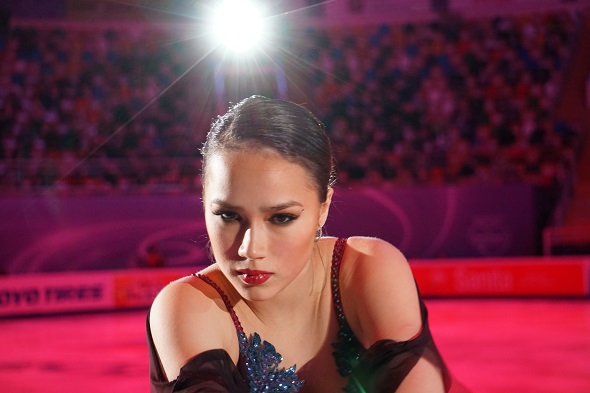
- Didn't let go?
- Nope.
- Until you announced the end of your sports career.
- No, of course not. But at such competitions as the championships of Russia, the world, others, I do not perform, because I do not have enough physical form, but I would like to.
- Do you not give up the idea of returning to the sport in any capacity, an athlete, a coach?
- I don't know. I've always been interested in coaching, but it takes a lot of nerves. We'll have to wait and see.
- A familiar phrase.
- Yes. You know, when I started working in journalism, I realized that I wanted athletes to respond with not such boilerplate phrases as: wait and see; time will tell; it's the judges, not me... It turns out that the athlete seemed to answer and did not say anything. I want to hear more detailed answers from them. And when I find myself in the role of a journalist, I understand that I need to pull something out of the respondent and at the same time, I know that he will not say anything, because he wants to keep something inside himself.
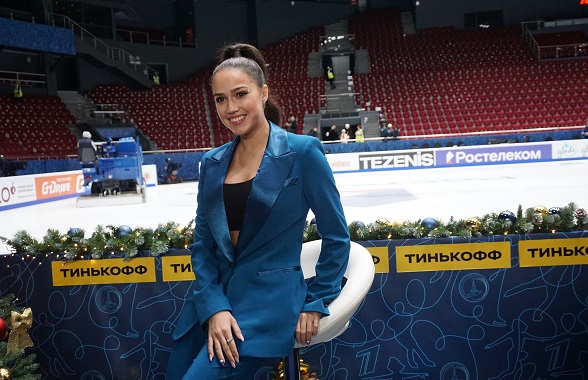
- Now you have the opportunity to look at the event from two sides. Are you interested in journalism?
- Yes. I'm interested in "talking" a person, figuring out how to approach them so that they open up rather than respond with standard phrases. Now I'm learning this, I recently read an article on how to win a person over. I remember our interview with Rita Mamun after the Olympics. It was her first interview, and she asked where I wanted to go and took me to the pet store, where there were dogs, various animals. I began to tell something, talked on my own, although I usually felt shaking. when I had to go to an interview. And then I "blurred", I felt good. So the main thing is to catch the moment when a person can open up. Journalists are also psychologists.
- Are you reviewing your Olympic performances?
- I used to review it many times, now for some reason I don't. Too much nostalgia. And before, when I looked, I thought – wow, so cool! When I was asked about my emotions after the Olympics... Yeah, I just worked very hard. And only now, after a while, I understand what the emotions were and what I went through.
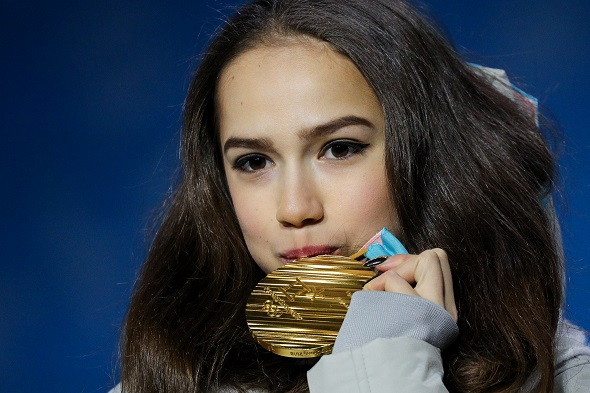
- And what were your emotions?
- Completely different. I couldn't fully rejoice... My mother came to the Olympics, I knew where she was sitting in the stands, and it helped me a lot. I went out on the ice with a completely cool head. But before that, there were very difficult workouts. Then, even before the short program, I was taken for doping, and I missed the training, which made me nervous...
You know, before the free skate, I had a dream that I was winning the Olympics. And imagine, I wake up and realize that there will only be an arbitrary one... And there was such a feeling as in childhood, when you dream that you have wings behind your back and fly, and you wake up and ... But the dream turned out to be prophetic.
- After the Olympics, you said that you did not immediately realize that you had become a champion, and Eteri Georgievna Tutberidze advised you to put on a gold medal and go to bed to wake up, see and understand. Was that the case?
- I specially put the silver medal that we won in the team in my jacket pocket so that it would always be with me, because it seemed to me then that this was something unreal, and this medal meant a lot to me. And I don't remember my Olympic medal exactly, I think I put it under my pillow, sleeping with a medal was not very comfortable.
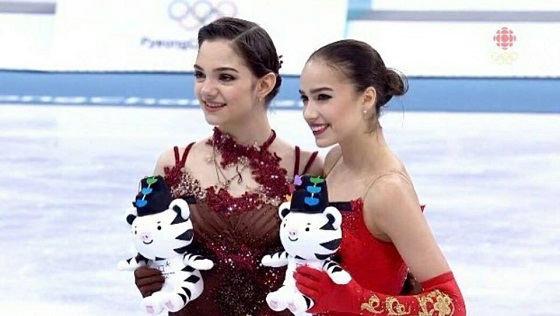
- How has your life changed after the Olympics?
- No way. There was just a lot of attention, there was some pressure from the press and people who write on Instagram, social networks ... It's very distracting. You can no longer train with a cool head and go to competitions with a cool head. A lot of emotions. Go to training in the morning and you can't do anything. Basically, the same workouts, but it was difficult for me.
- The most difficult period of your sports career?
-- After the 2018 World Cup. After Milan, I felt really bad. I was very upset.
- What was the motivation to continue?
- It was my parents and mother, first of all, who said that everything should be brought to an end. My mother, even in training, always said this: you need to train some more, go for stretching, although you could immediately go home, because it's late. But she -- no, she said, it needs to be done, and I guess she passed that character trait on to me.

- So you had to win the World Cup, win the missing title in the collection to put an end to it?
- Yes. But not a period, but an ellipsis. So that I was calm, I did not regret anything. But the preparation for the World Cup in Japan was very difficult. I missed training and not because I did not want to train, but simply understood that I would come now, I would not succeed again, and at the same time I realized that I would not succeed because I missed the training.
- A vicious circle.
- I don't know what was in my head then, I was sitting on the street and just crying... I still can't remember it...
- Well done for packing up, going and winning.
- I am very glad that then Eteri Georgievna "kicked" me a little and forced me, because I did not want to go to the World Cup, and everyone already knows this now. I didn't want to, first of all, because I didn't succeed in training, there were no clean rides. And I remembered the words of Eteri Georgievna when she was asked: are you worried before the competition? And she said, "Why bother? If you trained well, then it will bear fruit. As you practice, you will perform."
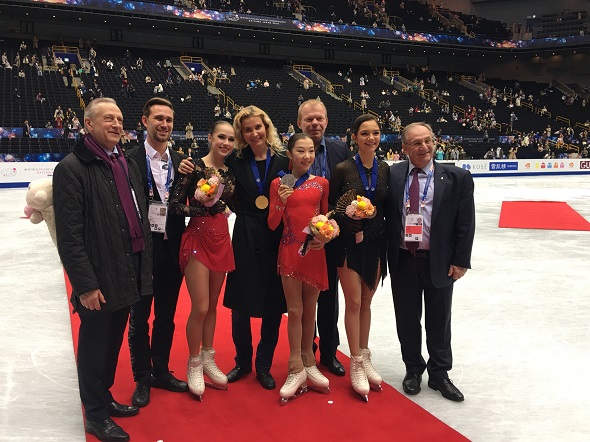
And I understood that too. I knew that I hadn't trained very well before Saitama and it was going to be a miracle and how I needed to get ready... There had to be a certain power, energy, emotion in it... I didn't want to go to the World Cup until the last minute. I decided at the very last moment, and we went to the airport by car with flashing lights ...
- In sports, you won all the titles and now you are trying yourself in different areas. How difficult is it to find new goals that you aspire to?
- Now my goal is to do my job and do it well. That's the goal, I guess. So that I was satisfied, so that the people who took me and entrusted me with this work were satisfied. In sports, the goal is clear – the Olympic Games, to win everything. And in journalism... For now, just happy to do your job...
I actually enjoy working in television. When I came to Ice Age, it was my first experience. It was difficult at first, I did not understand what and how. And although I had an "ear" for insurance, I was very worried, lost and it interfered. Like I watch speeches, I scroll through something in my head, I come up with questions, and I go up to a person and I don't remember anything, just from the word "at all". I saw that a person fell, and I gave him a great performance, and I hear the phrase that she carries ... But nothing happens all at once, all of a sudden. And I am very grateful that the people who took me as a presenter understand everything and gave me the opportunity to lead the Ice Age again and see how gradually I am improving, developing. It's very cool.
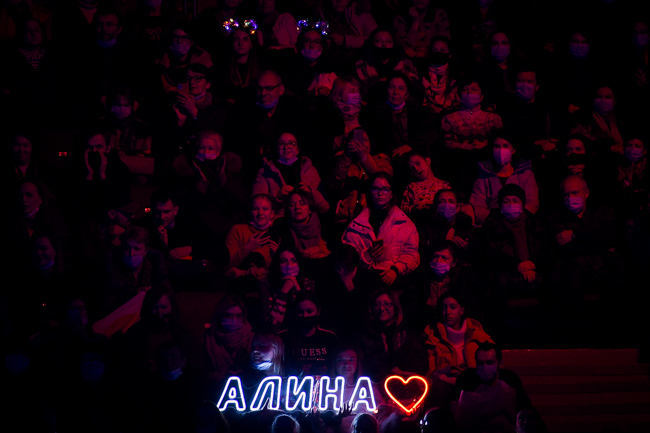
You've always said you don't like publicity, but thanks to your work on television, you've been in the spotlight. Reconciled to such a life, when your every step, personal life is discussed in the press?
- It's impossible to escape the attention of the press, they still climb. But now I am also "on the other side", so I partially understand that journalists need sensationalism and without us they would have nothing to write about. But I prefer to talk to journalists you can trust. And I want to become such a journalist myself.
A public person is largely dependent on public opinion. And for me, it plays a role. Yeah, I guess I could ignore everything that's written about me. But I have parents who also read this. And if for me a lot of things are familiar, I have been in this since the age of 14, then my parents are only now really confronted and are very upset. And when I see that, I get upset with them.
- You recently posted a post about yourself on an intagram. Was it important for you to share your experiences with people who also face hate in life?
- I think a lot of people face hate, bullying at school, at work, and when people see that they are not alone, then maybe my words will help them in some way. To be honest, I was angered by the reaction of some viewers during Ice Age. No matter what I wear, it's impossible to please everyone. Did they write that you open your hands? I go out in a dress with sleeves, why do you close it?..
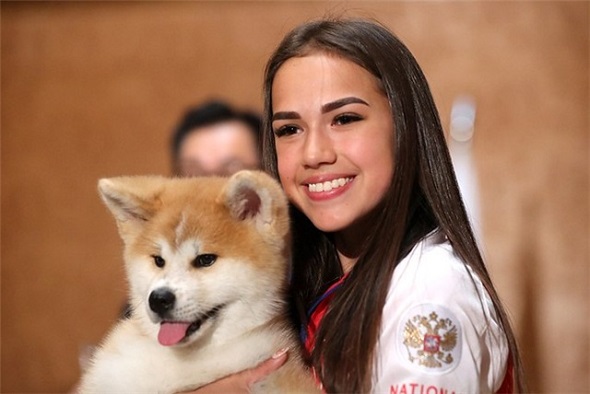
Or my fans and Zhenya Medvedeva write some nasty things to each other. But I've said many times, "Guys, let's live together." If you don't like something, why not come up to me and say it straight to my face? They're sitting in the stands, why not come down, don't come up, I'm right there, next to me, at the curb. Let them say.
- I don't want to end the interview on this question. Tell us a little bit about Masaru, the Olympic gift. How is she doing?
- I have a third dog now, and Masaru doesn't get along very well with it yet. Masaru has her own character, she likes to lie down to be caressed. She does not like to run, she has a measured lifestyle. If in the morning I make myself a cheese sandwich, and small dogs immediately eat the pieces of cheese that I give them, then Masaru will smell, taste, if he does not like it, he will not spit it out, but carefully put it on the floor ... She has very smart eyes and a smile that I like.
We tried to find her a "partner" to get puppies, but Masaru is a bit grumpy, and we thought -- we won't insist. And it's a pity to give the puppies away. Everyone tells me, she will forget them, she will not understand them, but I will not forget. So I told my parents, if there are puppies, I'll keep them. I didn't want Masaru for advertising, not for anything else, but I was looking for a friend.
- Thanks, Alina.
Olga ERMOLINA, Tatyana FLADE
Photo by Julia KOMAROVA, Tatiana FLADE, Andrey GOLOVANOV, Irina ZIMFER

No comments:
Post a Comment